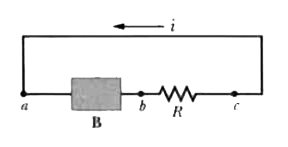Electric Potential Energy
Step by step video solution for Electric Potential Energy by Physics experts to help you in doubts & scoring excellent marks in Class 12 exams.
Updated on:21/07/2023Similar Questions
When a proton approaches another fixed proton, what happens to :
(a) the kinetic energy of the approaching proton
(b) the electric potential energy potential energy of the system and
(c ) the total energy of the system ?
View SolutionIs it possible to have an arrangement of two point charges separated by finite distances such that the electric potential energy of the arrangement is the same as if the two charges were infinitely far apart? What if there are three charges?
View Solution
Knowledge Check
A point charge q1 is held stationary at the origin. A second charge q2 is placed at a point a, and the electric potential energy of the pair of charges is −6.4×10−8J. When the second charge is moved to point b, the electric force on the charge does 4.2×10−8J of work. What is the electric potential energy of the pair of charges when the second charge is at point b?
A−10.6×10−8JB−1.06×10−8JC−100.6×10−8JD−1.006×10−8JA uniform electric field E0 is directed along positive y-driection. Find the change in electric potential energy of a positive test charge q0 when it is displaced in this field from yi=a to yf=2a along the y-axis.
A−q0E0aBq0E0aC−q0E0aDq0E0aTwo point charges are located at two of the vertices of a right triangle. If a third charge −2q is brought from infinity and placed at the third vertex, what will its electric potential energy be? Use the following values: a=0.15m,b=0.45m,andq=2.0×10−5 C.
A−17JB+8.5JC−12JD+14J
Three point charges are arranged at the vertices of an equilateral triangle ABC of side l. Charges at A, B and C are +q, +4q and -6q, respectively.
(i) Calculate electric potential energy of this system.
(ii) Charge at A is moved to the midpoint of AB, charge at B is moved to midpoint of BC and charge at C is moved to midpoint of CA. Calculate electric potential energy of this system now.
(iii) What work is needed to shift the charges to new locations as described in part (ii)?
View SolutionThe figure shows the current I in a single-loop circuit with a battery B and a resistance R (and wires of negligible resistance). (a) Should the emf arrow at B be a drawn pointing leftward or rightward? At points a,b and c rank (b) the magnitude of the current )c the electric potential, and (d) the electric potential energy of the charge carriers greatest first.

View SolutionTwo neutral particles are kept 1m apart. Suppose by some machenism some charge is transferred from one particle to the other and the electric potential energy lost is completely converted into a photon. Calculate the longest and the next smaller wavelength of the photon possible. h=6.63×10−34Js.
View SolutionConsider the situation of the previous problem. A charge of 2.0×10−4C is moved from the point A to the point B. find the change in electrical potential energy UB−UA for the cases (a) , (b) and ( c ).
View SolutionIf the p.d. across the ends of a capacitor 4μF is 1.0 kilovolt. Then its electrical potential energy will be
View Solution
